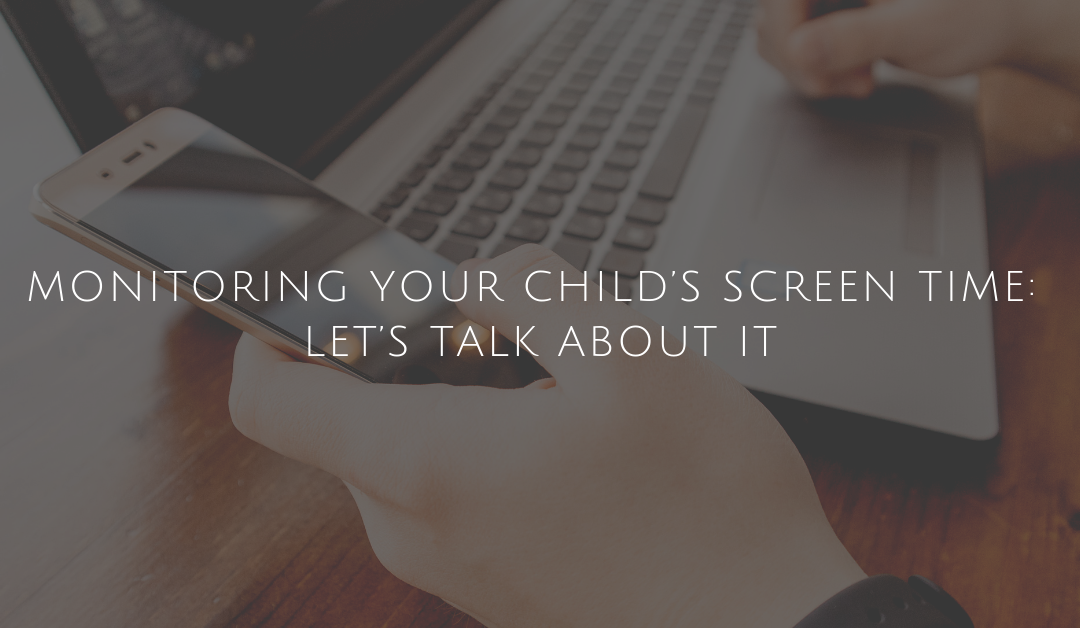
by Sara Hart | Mar 13, 2019 | Blog
Last month, a story in the media about a social media challenge directed at children and young adults, called the “Momo Challenge,” created unease in parents throughout the country. The challenge turned out to be a social media hoax and no reports of children participating in the challenge actually surfaced – but they were still aware of it and were discussing it among friends.
Several questions and concerns in parents arose from this internet scare. Do I have a firm understanding of what my child is actually viewing online? How do I successfully and healthily monitor my child’s social media and internet usage? Below, we offer a few tips on how parents can become more in touch with and supervise their child’s digital footprint.
Establish open lines of communication
It’s important to sit down with children to explain what’s out there and the harmful impact some online content can have on them. Don’t be afraid to have these hard conversations. Children experience fewer damaging effects when they’ve been taught basic media literacy skills.
Make technology use a privilege
Make it known that your children have to earn their screen time. This may be difficult for them to understand, but stay …

by Sara Hart | Feb 18, 2019 | Blog
Every teenager is going to experience pressure at some point in his life – pressure to achieve academically, pressure to fit in, pressure to establish a career path, etc. With the increasing demands put on teens today, it’s essential for them to understand the importance of mental wellness. Developing self-confidence through mental wellness will make it easier on teens to resist peer pressure.
Mental health is just as important as physical health, and it’s crucial for teens to appreciate its role in wellness as they prepare to venture into the world on their own. Below, we offer a few tips on how to encourage your teen to prioritize mental health.
Teach coping skills
Learning how to deal with and conquer negative emotions takes time. Work with your child to establish healthy coping skills that will ease the stress of the daily struggles he faces. Coping techniques can be different for every teenager, so work together to find what works. The goal is to establish a habit that will help your child put his negative feelings into perspective, allowing him to seek a healthy solution.
Be open to having hard conversations
It’s no secret that talking with teenagers about controversial subjects …

by Sara Hart | Aug 30, 2018 | Blog
Whether you’re a college freshman who’s independent for the first time or a college senior who’s tasked with landing a job upon graduation, students of all ages deal with a lot of change, which can often be stressful and scary.
It’s true that your college years can be some of the best years of your life. But, we won’t sugar coat it – life in college can definitely be hectic, demanding and intimidating for some. The good news is you’re not the only one feeling this way. Experiencing anxiety over major life changes is normal. Some levels of stress can actually be a good thing, as the right kind of stress can lead us toward positive change and growth. However, stress and anxiety become a problem and a health risk for students when they exist for an extended period of time and seem impossible to control.
Whether it’s social or academic pressures, it’s important to seek resolutions from healthy outlets instead of harmful ones – such as drugs and alcohol. There are several resources available on campus to help you cope with and manage student stress. If you feel you need further guidance and support, these resources can connect you …

by Sara Hart | Jan 24, 2018 | Blog
One of South Bay’s most unique attributes is that the majority of our services are conducted outside of our offices, such as in community settings. Our Early Childhood clinicians frequently travel to homes, schools, foster homes, residential programs, churches, childcare programs etc. – wherever our consumers feel most comfortable.
We understand that inviting an outside party into your home to work with your child can be scary and intimidating. There’s also a common misconception amongst our consumers that a South Bay clinician is the only party involved in the child’s development. It takes a joint effort of the entire family and our Early Childhood team to ensure growth, stability and well-being during the child’s early years. We explain everything you need to know about home-based services for children below.
The clinician’s role
When serving a child, South Bay’s Early Childhood clinicians work with the entire family – not just the child. The clinician’s role is to identify developmental delays and provide support to families if there are environmental barriers that are contributing adversely and may impact the child’s development. Such barriers may include drugs, alcohol, traumatic birth, etc. Once the developmental delay is determined, clinicians provide consultation among the team …




